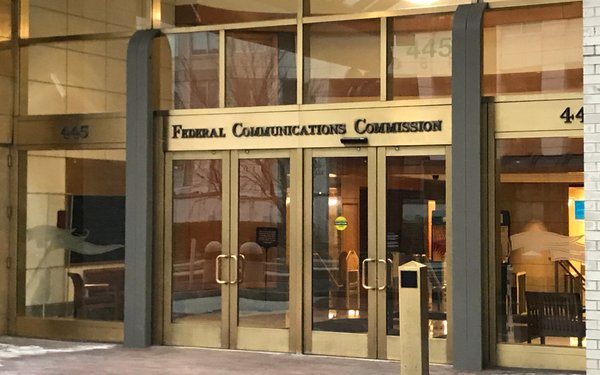
Wireless carriers are urging
the Federal Communications Commission to leave in place a recent ruling that effectively allows carriers to block text messages.
“The Declaratory Ruling is firmly grounded ... and will
advance the Commission’s goal of protecting consumers from unwanted robotexts,” the industry organization CTIA says this week in a new FCC filing.
AT&T also weighed in with the
FCC in favor of the new ruling.
The order, approved by a 3-1 vote last December, declares text messaging an “information” service -- a move that exempts text-messaging services
from the common carrier rules that apply to telephone services, including rules that prohibit censorship.
FCC Chairman Ajit Pai says the move enables carriers to block robotexts. But consumer
groups and Senate Democrats dispute that reasoning. They argue that the FCC could have allowed classified texting as a common-carrier service and still allowed phone providers to block unwanted
robotexts -- especially given a 2016 FCC ruling that allows telephone carriers to block robocalls.
advertisement
advertisement
In
January, a coalition of advocacy groups including Public Knowledge, the Center for Democracy and Technology and Consumer Federation of America asked the FCC to reconsider its order. Among other
arguments, the groups said the order could “potentially limit the ability of schools and teachers to stay in touch with students and parents.”
They pointed to a recent dispute (now resolved) between the free service Remind --
used by educators and students -- and Verizon Wireless. Earlier this year, Remind said it was going to be charged a new texting fee by Verizon. Two weeks later, Verizon backtracked and said it wouldn't charge Remind a new fee.
“In the guise of fighting spam, network management, and similar rationales, major carriers may be poised to make third-party services like Remind untenable,” the advocates wrote in
their petition to the FCC. “While Remind has been able to resolve its highprofile dispute with Verizon for the moment, this ad hoc approach does not scale to all apps, and all
carriers.”
AT&T counters in its filing that the resolution of the Remind-Verizon dispute shows “that common carrier regulation is not necessary.”
For its part,
the industry association CTIA maintains the FCC's order will help combat scams. “Wireless providers continue to work hard to shield consumers from unwanted messages, such as pay-day lending
schemes and fraudulent bank notifications that prey upon the nation’s most vulnerable consumers,” the organization says this week in an FCC filing. “The Declaratory Ruling helps to
ensure that wireless providers retain the ability to fight back against this malicious traffic and maintain consumers’ trust in the reliability and convenience of messaging.”